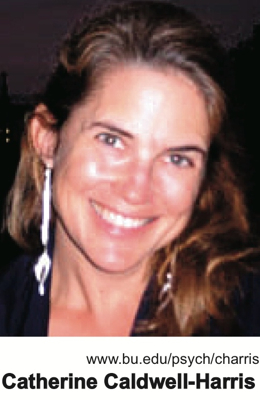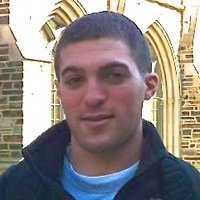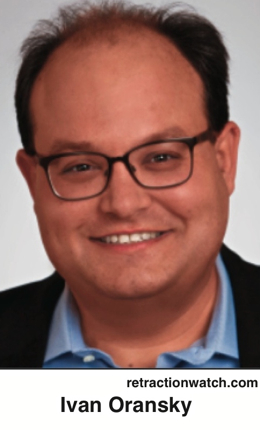Rascals case in brief
In the beginning, in 1989, more than 90 children at the Little Rascals Day Care Center in Edenton, North Carolina, accused a total of 20 adults with 429 instances of sexual abuse over a three-year period. It may have all begun with one parent’s complaint about punishment given her child.
Among the alleged perpetrators: the sheriff and mayor. But prosecutors would charge only Robin Byrum, Darlene Harris, Elizabeth “Betsy” Kelly, Robert “Bob” Kelly, Willard Scott Privott, Shelley Stone and Dawn Wilson – the Edenton 7.
Along with sodomy and beatings, allegations included a baby killed with a handgun, a child being hung upside down from a tree and being set on fire and countless other fantastic incidents involving spaceships, hot air balloons, pirate ships and trained sharks.
By the time prosecutors dropped the last charges in 1997, Little Rascals had become North Carolina’s longest and most costly criminal trial. Prosecutors kept defendants jailed in hopes at least one would turn against their supposed co-conspirators. Remarkably, none did. Another shameful record: Five defendants had to wait longer to face their accusers in court than anyone else in North Carolina history.
Between 1991 and 1997, Ofra Bikel produced three extraordinary episodes on the Little Rascals case for the PBS series “Frontline.” Although “Innocence Lost” did not deter prosecutors, it exposed their tactics and fostered nationwide skepticism and dismay.
With each passing year, the absurdity of the Little Rascals charges has become more obvious. But no admission of error has ever come from prosecutors, police, interviewers or parents. This site is devoted to the issues raised by this case.
On Facebook
Click for earlier Facebook posts archived on this site
Click to go to
Today’s random selection from the Little Rascals Day Care archives….
Click for earlier Facebook posts archived on this site
Click to go to
Today’s random selection from the Little Rascals Day Care archives….
50 students now know the facts
 Oct. 28, 2013
Oct. 28, 2013
“What was surprising was that in a class of 50 students, none had heard of the day care allegations of the 1980s.”
– From a note from Catherine Caldwell-Harris, associate professor of psychology, Boston University
Well, that’s a bracing dose of reality, isn’t it? But thanks to Dr. Caldwell-Harris, those students in her developmental psychology class now have an understanding of the moral panic. Here’s her lesson plan, which she doesn’t mind being borrowed, along with her comments on how students responded.
Maybe the current generation of academics sees clearly what many of their predecessors so horribly misjudged?
Prosecutors must recognize vulnerability to cognitive flaws

mic.com
Michael Shammas
Nov. 17, 2016
“It’s no secret that we humans grant far too much confidence to our opinions. But when powerful people do this, the dangers compound. Zealotry replaces fair-mindedness. The worst excesses happen when prosecutors forget they’re flawed humans, like anyone else, and that as a result they’re subject to cognitive flaws like tunnel vision, racial bias, and the desire to reduce cognitive dissonance through ‘cognitive consistency’ even at the expense of complicated, nuanced, self-contradictory, paradoxical truth….
“Cognitive bias and overconfidence touch us all. Only a conscious awareness that we might be wrong can counter unthinking heuristics, biases, and schemas that lead to imperfect conclusions….
“Wisdom counsels not the confident use of power, but the wise use of power. The first step of wisdom is recognizing how little we know….”
– From “ ‘Making a Murderer’ Attorney Highlights Our Troubling Rate of Wrongful Conviction — and Suggests a Solution” by Michael Shammas in the Huffington Post (July 12)
And the latest on the still-imprisoned Brendan Dassey.
![]()
Psychiatric Times clings to embarrassing position
 Feb. 14, 2014
Feb. 14, 2014
Thanks to Ivan Oransky at Retraction Watch for spotlighting Psychiatric Times’ remarkably inept retraction of Richard Noll’s “When Psychiatry Battled the Devil.”
Don’t miss the update appended by Dr. Noll:
“On 16 January 2014 I received a gracious email from PT’s editor-in-chief, Dr. James Knoll, updating me on the status of my submission. This message cleared up the mystery of the published article’s disappearance from PT.
“According to Dr. Knoll, ‘In an effort to present both sides, PT contacted Dr. (Richard) Kluft (of Philadelphia). Please know that not only did he take exception to a number of your points, but he also raised the issue of legal liability. We are currently in the process of confirming that Dr. Kluft is willing to write a rejoinder to your piece.’
“Apparently he refused. About 10 days later I received another email from Dr. Knoll telling me that the reposting of my piece was to be put on hold at the advice of their attorneys. He did not outright reject the possibility it would be reposted, but I have heard nothing since….”
Followers of Retraction Watch – or even of littlerascalsdaycarecase.org – are not surprised to see editors go to absurd lengths to avoid candid correction. But the behavior of Psychiatric Times, billed as the most widely read psychiatric publication and boasting a lengthily-credentialed editorial board, seems especially unbecoming – even pusillanimous.
Dr. Kluft? Dr.Knoll? Can’t you do better?
Retraction won’t kill you, journal editors
June 7, 2013
“One hundred and fifty-five years after it snubbed Dr. John Snow in his obituary, The Lancet is taking it back.
“The British medical journal noted that its original obituary – published June 26, 1858 – failed to mention his “remarkable achievements” in epidemiology, especially his research on the way cholera is spread….
“It’s not the first time a publication has issued a correction for work published decades ago. The New York Times corrected a 26-year-old error about horse-drawn carriages in Central Park in 2011, and once retracted a 1920 editorial that claimed space travel was impossible.”
– From “The Lancet Corrects Obituary For John Snow Published 155 Years Ago” in the Huffington Post (April 12)
If The Lancet and The New York Times can reach back in their archives to right the record, why can’t Journal of Child and Youth Care, Child Abuse & Neglect and Nursing Research?











0 CommentsComment on Facebook